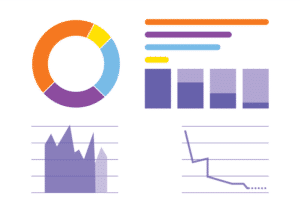On-page relevance – In the world of digital marketing, textual relevance is of significant importance as it has a direct impact on website visibility, brand credibility and business results. Nowadays, when the internet is the main source of information, it is essential that a company’s website is not only findable, but also meaningful and relevant. Textual relevance optimisation allows you to create content that meets the needs and search queries of your target audience, thereby improving your page’s positioning in search engines.
As an SEO agency committed to implementing best practices, we emphasise the importance of textual relevance optimisation as a creative process that requires understanding the target audience and constantly updating content. Success in this field depends on the ability to create resonant content that offers value and answers. Thus, we dive into the nature of textual relevance, its key drivers and share tips for effective website optimisation in digital marketing.
Deeper understanding of textual relevance
Textual page relevance is a key concept that describes how well a website’s content responds to a user’s search query. This is not just about using keywords correctly in the text, but a deeper connection between the user’s intentions and the content they are looking for.
Search engines such as Google strive to provide users with the most relevant and highest quality results, which is why optimising textual relevance is one of the main goals of any SEO strategy.

Factors affecting relevance
Relevance is influenced by a number of factors, which can be divided into two broad groups: external and internal.
-
External factors include aspects such as the authority of the page, the quality of inbound links and social media influence. These factors help search engines to assess a page’s trustworthiness and popularity.
-
Internal factors focus on the content of the page itself. This includes not only the appropriate use of keywords, but also the quality, structure, uniqueness and user experience of the content. Optimising internal factors requires a thorough understanding of the target audience and their search intentions.

Selecting priority pages for optimisation
Choosing priority pages for optimisation requires a strategic approach.
- The first step is to understand which pages on your website are the most important, providing value and meeting user needs.
- It is then necessary to analyse how these pages are currently ranked by search engines and what potential they offer for better positions.
Analysing your competitors allows you to understand what strategies they are using and how you can improve your pages to outperform them.

Strategies to increase textual relevance
There are a number of strategies to increase textual relevance. You should start with keyword research to understand what terms and phrases your target audience is using. You should then optimise the content of your page to make sure it is relevant, informative and matches the user’s search query. The structure of the content is also important, use h1 and h2 headings, lists and highlight important information to improve readability.
-
Content creation and optimisation: create rich, relevant and valuable content that speaks to your target audience and responds to their search queries. Optimise your pages by using keywords naturally and placing them strategically in page titles, subheadings and body text.
-
External and internal linking: build quality external links from trusted sites and use an effective internal linking structure to improve the authority of the page and increase user engagement.
-
Improving the user experience: make sure your website is fast, user-friendly and mobile-friendly. A good user experience helps to reduce bounce rates and increase time spent on the site.

Why does the success of a website depend on relevance?
In the digital marketing landscape, the relevance of a page is often an underestimated and overlooked factor, which may be the secret ingredient to success. Many businesses fall into the trap of focusing on the wrong aspects, neglecting the actual relevance of their website content to user search queries.
The importance of relevance and common mistakes
Let’s say you’ve searched the internet for a certain word or phrase, and found a page in the results that appears at first glance to be what you’re looking for. But when you enter the page, you discover that the content doesn’t meet your expectations or is too superficial. Such experiences are all too common, pointing to how many businesses do not pay enough attention to optimising their pages for the right keywords. This not only degrades the user experience, but also affects the credibility and authority of the company’s website in the eyes of users.
Relevance in Google Ads ads
For Google Ads, the importance of page relevance is even more prominent. A perfectly crafted ad that directs users to an inappropriate page can result in a low keyword score. This, in turn, raises the cost per click and reduces the effectiveness of the ad, resulting in missed orders. It follows that the success of an advertisement depends not only on its visual or textual appeal, but also on the content and relevance of the landing page.
The secret of successful leaves
A successful website is one whose content is specific, relevant and easy to find. This transparency and user-friendliness, combined with effectively placed calls to action (CTAs), create the ideal environment for visitors to the site to become subscribers. The success of sites that follow these principles is not accidental, but the result of continuous work to optimise relevance and user experience.
See also our basic services:
- Google advertising
- Facebook advertising
- Seo service, search engine optimisation
- Social media marketing
- Seo service
- Seo audit
- Technical SEO
- Local SEO
- E-commerce SEO
- On-page SEO (On-Page SEO)
- Off-page SEO (Off-Page SEO)
- Creating backlinks
- Page speed optimisation
- Seo keyword analysis
- Content creation and SEO optimisation
- Competitor analysis
- SEO consultations






